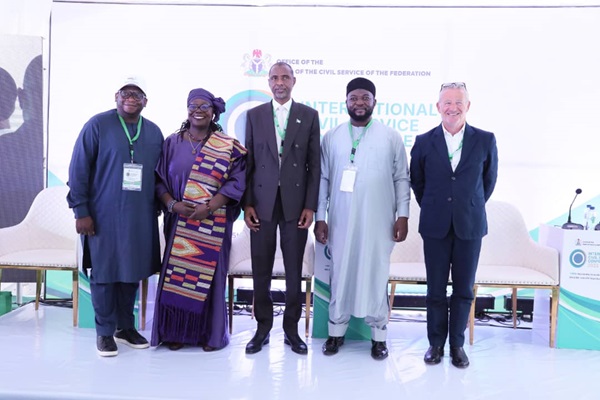
In a bold move to curb the growing brain drain in Nigeria’s public sector, the National Information Technology Development Agency (NITDA) has launched a digital competence framework and career progression model designed to strengthen ICT capacity and retain top talent within the civil service.
NITDA’s director-general, Mallam Kashifu Abdullahi announced the initiative during the maiden edition of the International Civil Service Conference organised by the Office of the Head of the Civil Service of the Federation in Abuja. Speaking at the session titled “Digital Transformation: Digital Skills for Civil Servants – Capacity Gaps and Future Readiness,” Abdullahi stated that the framework aims to make public service roles more attractive and professionally rewarding.
Represented by the acting director of the digital literacy and capacity building department, Dr. Ahmed Tambawal, the DG noted that the initiative, developed in partnership with the Office of the Head of the Civil Service, addresses a key challenge: the stagnation and underutilisation of skilled digital professionals within government structures.
“Highly skilled professionals are often stuck in roles that don’t reflect their abilities, while their private sector counterparts benefit from clearer advancement paths and constant upskilling,” Abdullahi said.
Already being piloted within NITDA, the framework will soon be extended to other ministries, departments and agencies (MDAs). It offers structured career trajectories and access to internationally recognised certifications, allowing civil servants to grow professionally while playing a pivotal role in Nigeria’s digital transformation.
As part of the initiative, NITDA has also launched the Digital Champions Programme in collaboration with the Office of the Head of the Civil Service. This programme identifies standout digital talents across MDAs and equips them with specialised training to become change agents within their organisations.
“These champions will lead digital innovation from within, boosting efficiency and nurturing a culture of transformation across government,” Abdullahi added.
The launch comes at a time when Nigeria is witnessing a mass exodus of skilled professionals—commonly referred to as the ‘Japa’ phenomenon – in search of better career prospects abroad. By improving career development and recognition within public service, NITDA hopes to reverse the trend and create a dynamic, future-ready workforce.
“We are committed to developing a digital civil service that retains talent, promotes growth and drives national development,” Abdullahi affirmed.
Other speakers at the session included PS Faruk Yabo Yusuf (lead speaker), Kevin Cunnington and Wumi Oghoetuoma-Jolomi. Discussions focused on the rapidly evolving nature of government, which now requires not just the adoption of new technologies but a fundamental rethinking of how public services are delivered. Success, they argued, depends on equipping civil servants with the right skills, evaluating capabilities, and using public data to create more personalised, responsive governance.


